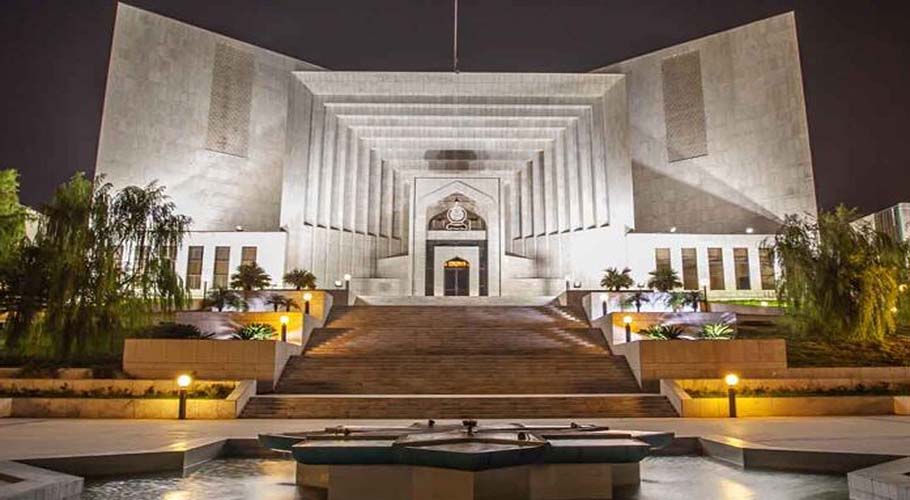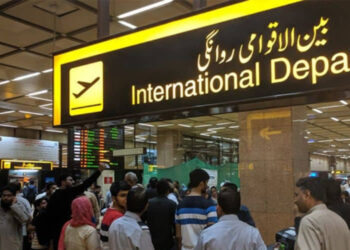ISLAMABAD: Supreme Court of Pakistan on Friday fixed the hearing of PTI Chairman Imran Khan’s petition against amendments in the NAB law for January 10. A three judges bench headed by Chief Justice of Pakistan Umar Ata Bandial would conduct the hearing.
Also read: ‘NAB amendments only benefited the legislators’, remarks Justice Ijazul Ahsan
The last hearing of the petition was conducted on December 14 during the course of which CJ Umar Ata Bandial had observed that many cases with regard to the resignations of PTI lawmakers were pending, but the court should not comment on political matters.
Also read: Amendments in NAB’s law made cases’ trail more complex: SC
It may be recalled that in June last year, former prime minister and PTI chairman Imran Khan approached the Supreme Court to challenge the coalition government’s recent amendments to the National Accountability (NAB) Ordinance, contending that they will “virtually eliminate any white-collar crime committed by a public office holder”.
PTI کے چئیرمین عمران خان کیجانب سے نیب ترامیم کو سپریم کورٹ آف پاکستان میں چیلینج کرتے ہوئے دستور کے آرٹیکل 184(3) کے تحت باضابطہ درخواست دائر کردی گئی ہے ۔ #RegimeChangeInPakistan pic.twitter.com/19U1bK0K6A
— PTI (@PTIofficial) June 25, 2022
The Petition:
In the petition, the ex-premier named the Federation of Pakistan through its secretary Law and Justice Division and the NAB through its chairman as respondents in the case.
Khan requested the court to adjudicate upon questions of “great public importance” with reference to the enforcement of fundamental rights of citizens under articles 9 (security of a person), 14 (inviolability of dignity of a man, etc), 19A (right to information), 24 (protection of property rights) and 25 (equality of citizens) of the Constitution.
Also read: Sheikh Rashid demands SC to put beneficiaries of NAB amendments on ECL
Most of the amendments brought into NAB, he argued, were person-specific. “As such, it is just and fair to protect the constitutional and fundamental rights of the citizens of Pakistan.
“The NAB may be asked to provide details of all such cases which relate to the prominent and influential holders of public office, specially regarding cases pertaining to offences of owning assets (movable and immovable) without means,” the petition stated.
It added that the amendment hands over the president’s right to appoint the body’s chairman to the government which will “maneuver by the bulk of the holders of public office to assume control over and influence the impartiality of the NAB chairman.”
Imran further said: “The accountability of political actions takes place at the time of elections, and is dependent upon laws that ensure free and fair elections; accountability for legal or administrative actions is available to the people by way of judicial review, and is dependent upon the existence of a free, fair and independent judiciary; while accountability for the functions discharged by the elected representatives of the people in their fiduciary capacity, which, as a matter of fact, permeates all categories, is possible only where law specifically provides for such accountability.
“The removal of hurdles in the normal time-tested and universally adopted methods of proving these “white collar crimes”, reducing the efficacy, transparency, and fairness of these laws coupled with a free and independent judiciary, and freedom of the investigators and the prosecutors from the influence and interference of those very chosen representatives whose alleged corruption and corrupt practices they are tasked to investigate and prosecute.”
He cautioned that making accountability law “weak and ineffectual” was a severe breach of the Constitution and underscored that the people of Pakistan had the right to hold their elected representatives accountable for their fiduciary actions.



































